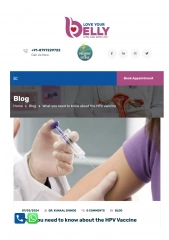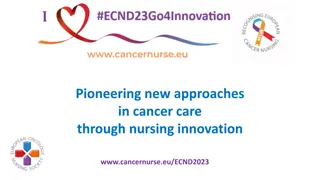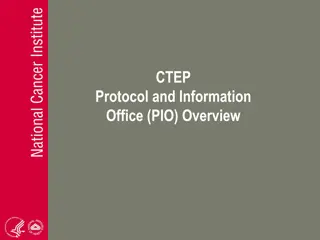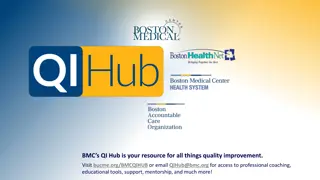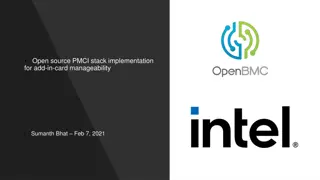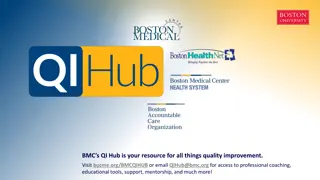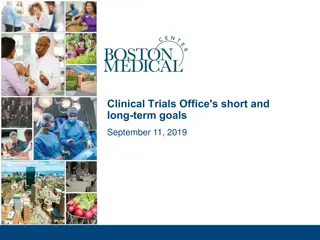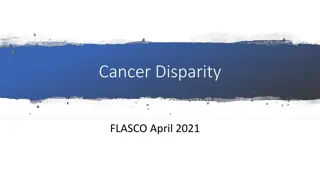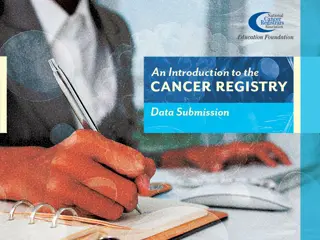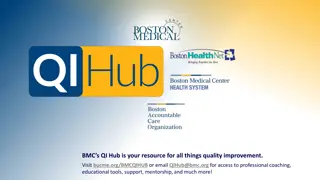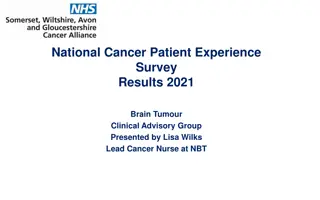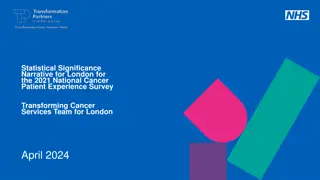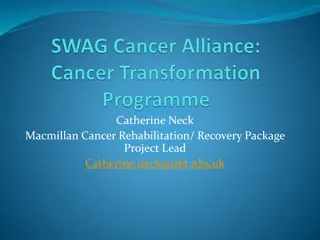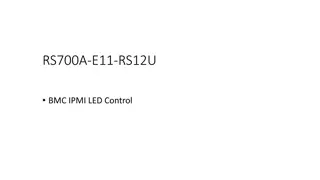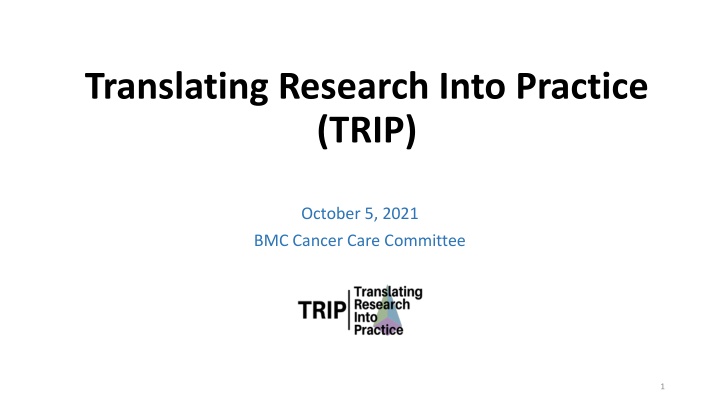
Implementing Evidence-Based Care Coordination for Breast Cancer Patients in Boston
Explore the initiative of systematically implementing evidence-based care coordination in Boston to reduce delays in treatment for minority women. This project involves a city-wide collaboration among local academic medical centers, focusing on patient navigation, shared registry, and social needs screening. Eligibility criteria target women with breast cancer who are Black and/or Hispanic/Latina, uninsured or on public insurance, and living within 25 miles of Boston. Demographics and social needs assessments provide valuable insights for tailored interventions.
Download Presentation

Please find below an Image/Link to download the presentation.
The content on the website is provided AS IS for your information and personal use only. It may not be sold, licensed, or shared on other websites without obtaining consent from the author. If you encounter any issues during the download, it is possible that the publisher has removed the file from their server.
You are allowed to download the files provided on this website for personal or commercial use, subject to the condition that they are used lawfully. All files are the property of their respective owners.
The content on the website is provided AS IS for your information and personal use only. It may not be sold, licensed, or shared on other websites without obtaining consent from the author.
E N D
Presentation Transcript
Translating Research Into Practice (TRIP) October 5, 2021 BMC Cancer Care Committee 1
City City- -Wide Collaboration Wide Collaboration Research Leads Local Academic Medical Centers
The Research Question The Research Question Can we systematically implement evidence-based coordination of care across the city of Boston to reduce delays in care for minority women? Can we systematically implement evidence-based coordination of care across the city of Boston to reduce delays for the most vulnerable women? Patient navigation network Shared registry Standard social needs screen 4
Eligibility Criteria Eligibility Criteria All: Age 18 years Sex: Female Diagnosis: Breast cancer Lives within 25 mi of Boston At least one: Black and/or Hispanic/Latina Preferred language is not English Uninsured or on public insurance AND
Demographics Demographics Intervention (n=511) 123 (24%) 219 (43%) 169 (33%) 51 (10%) 235 (46%) 66 (13%) 142 (28%) 16 (3%) 262 (51%) 249 (49%) 330 (65%) 181 (35%) 185 (36%) 92 (18%) 222 (43%) 7 (1%) Historical Control (n=595) 158 (27%) 229 (38%) 208 (35%) 99 (17%) 251 (42%) 74 (12%) 151 (25%) 7 (1%) 313 (53%) 282 (47%) 384 (65%) 211 (35%) 217 (36%) 108 (18%) 261 (44%) 9 (2%) <50 50-65 >65 Age White Non-Hispanic Black Non-Hispanic Asian Non-Hispanic Hispanic Other English Not English Boston Greater Boston Private Medicare Medicaid Uninsured Race/Ethnicity Language Region Insurance Data as of 9/8/2021
Social Needs Assessments Social Needs Assessments Baseline Follow-up (3 month) 160/511 patients screened 340/511 patients screened Top 3 needs Top 3 needs Food 16% Utilities 11% Employment 23% Food 13% Employment 16% Transportation 10% Data as of 9/7/2021
Lessons Learned: Interviews Lessons Learned: Interviews Barrier Facilitator Value Added Expansion of program or navigator scope Relative priority of TRIP Increased complexity from documentation Compatibility with existing workflow Adapting protocol to existing workflow Continuous support and response to feedback Formalizing navigation process Regional approach to care
Additional Implementation Data Sources Additional Implementation Data Sources Observations of Navigation in the field (12 months after study launch) Navigator Interviews: 12 and 27 months Patient Interviews Cost Analysis Time motion Surveys and administrative cost worksheet
Publications Publications Standardized activities for lay patient navigators in breast cancer care: Recommendations from a citywide implementation study (Freund et al., 2019) Translating research into practice: Protocol for a community-engaged, stepped wedge randomized trial to reduce disparities in breast cancer treatment through a regional patient navigation collaborative (Battaglia et al., 2020) Outside our walls: the Case for city-wide collaboration to reduce disparities (Haas et al., 2020) Re: How the coronavirus disease-2019 may improve care: Rethinking cervical cancer prevention (Clark et al., 2021) Development of a workflow process mapping protocol to inform the implementation of patient navigation programs in breast oncology (Casanova et al., in press) Assessment of patient navigation programs for breast cancer patients across the city of Boston (LeClair et al., in press)
Timeline Timeline Dissemination Goal Timeline ACS Council of Advisors Boston Breast Cancer Equity Coalition Equal Hope (Chicago) End of enrollment 11/30/2021 End of navigation funding 5/31/2022 Analysis 5/31/2023
Dissemination and Sustainability Dissemination and Sustainability ACS Council of Advisors Boston Breast Cancer Equity Coalition Equal Hope (Chicago)
Questions? Questions?

